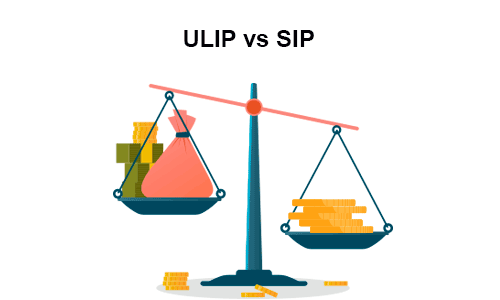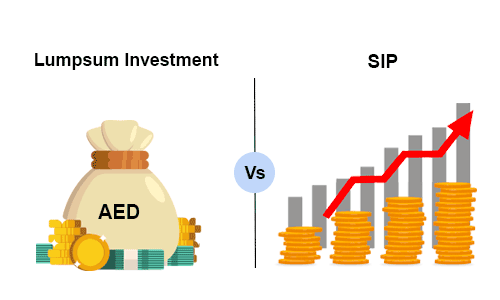Mutual Funds Vs Real Estate
Table of Content
While shortlisting the investing options in UAE, you may come across many products such as mutual funds, gold, real estate, equities, and so on. For long-term investment, though, real estate and mutual funds are among the most popular options on the list. However, this still leaves space for this question to pop up – should I invest in a piece of land or the ever-popular mutual funds?
Although one cannot be positioned against the other, a few factors can help you decide which one of mutual funds and real estate can suit your needs. This article will analyse real estate vs. mutual funds as long-term investment products.
Let's begin with the significant underlying question here –
Mutual Funds Vs Real Estate: Is It Even a Valid Comparison?
Both mutual funds and real estate belong to the growth asset category, with similar levels of risk involved. The performance of both investment instruments is subject to the market's volatility. As far as the raised question is concerned, one can indeed make a fair comparison of mutual funds vs real estate, as both offer different features that can suit the requirements of different types of investors.
1. Mutual Funds
Mutual funds collect money from investors to buy bonds, equity, stock, and other investments. There is no ideal time to invest in mutual funds, as one can invest in them at any age. The factors to consider when investing in mutual funds are the position of the market, time horizon, risk appetite, and return on investment.
Mutual funds are one of the best investment options in the UAE for short-term, mid-term, and long-term options. Long-term investment in mutual funds is certainly a good option considering the high returns in long term and relatively less risk.
2. Real Estate
Real estate includes any property in UAE that you buy or invest in. The list includes commercial plots for commercial/business purposes or residential spaces. Real estate, one of the reliable ways of long-term investments in UAE, can offer steady income and ownership of an asset.
A myriad of benefits of investing in real estate in the UAE can be availed of by individuals such as tax benefits, easy access to income, investor-friendly legislation, and significant growth potential.
Mutual Funds Vs Real Estate: An Overview
As mentioned earlier, a couple of differences can be observed between mutual funds and real estate.
Some of the major ones are discussed below –
1. Mutual Funds Vs Real Estate: Consistency
When making an investment decision, getting the most out of your returns and maintaining the value of assets are essential considerations.
- Real Estate - Real estate prices fluctuate depending on how the property is used and where it is located. Property prices tend to increase as more people move into that area. The consistency in real estate depends on factors including road networks, planned projects, social amenities, physical infrastructure, and so on. Thus, real estate is considered a safer and more reliable option if you want consistency.
- Mutual Funds - The 'mutual' in mutual funds states that although the investors hold the stock in the companies the fund purchases, they equally share the losses and gains of the overall funding of the fund. As the risk is distributed equally between investors, the collective return on mutual funds is good over a long tenure and low risk, when compared to direct investment in stocks. Nevertheless, the risk factor in mutual funds is relatively higher, and the investor may lose chunks of their savings if the money is not invested wisely.
2. Mutual Funds Vs Real Estate: Quantum of Investment
Affordability is essential to consider before opting between mutual funds vs real funds. Though both investment tools involve money, they differ significantly in terms of investment amount.
- Real Estate - Investing in real estate is a capital-intensive investment. While UAE residents have the option of financing the property, they still have to deposit 20% of the value of the property as a down payment. Investors with good financial positions and surplus funds can certainly invest in real estate and enjoy good returns, but the sector remains highly capital-intensive overall.
- Mutual Funds - Mutual funds, on the other hand, are more versatile as an investment option. Investors can invest as per their financial condition and don’t have to shell out a massive sum of money. The financial commitment towards mutual funds is lower than real estate. Moreover, you can increase or decrease the invested amount in mutual funds aligning with your pocket.
3. Mutual Funds Vs Real Estate: Liquidity
Liquidity refers to the ability to exchange an asset for cash. Assets that can be converted to cash quickly have higher liquidity and are generally more preferable by investors. Both mutual funds and real estate starkly differ in liquidity terms.
- Real Estate - The liquidation of real estate is one of its challenging parts, as you may not be able to sell the property instantly. To get a fair property value, you may need to spend days or months finding a suitable buyer. Moreover, there is no option for partial liquidation – the investor has to sell the entire property, even if the requirement of funds is less.
- Mutual Funds - Mutual funds are highly liquid as they can be swiftly converted into cash, with the amount being directly deposited in the bank account within a stipulated time frame. Generally, the funds are deposited in the account within two to three business days after selling mutual funds. Moreover, mutual funds can be sold in parts, meaning that you can get as much cash as you require without being required to sell all the units at once. Liquidity is one of the most notable reasons why individuals invest in mutual funds.
4. Mutual Funds Vs Real Estate: Potential returns
Returns are an integral part of the investment process, with the whole purpose of investing being the goal of generating good returns over time. Here is how the mutual funds vs real estate match plays out in terms of returns.
- Real Estate - Real estate investment returns significantly depend on the area where your property is located and the demand-supply forces at the time of investing the money. Overall, it is difficult to measure the financial performance of real estate. The possibility of shrinking the value of the property remains present with real estate in case of any adverse events related to the property, development of the area (or lack of it), demand, and more.
- Mutual Funds - As mutual fund returns depend on the prevailing conditions of the market, the risk of losing money is always high. While investing in mutual funds, the investor should consider the investment horizon while assessing their risk tolerance and financial goals. Generally, long–term mutual fund investments tend to yield higher returns than short-term ones. Moreover, with the risk being shared among a large number of investors, the risk factor is somewhat balanced here.
5. Mutual Funds Vs Real Estate: Risk Quotient
Corresponding to the returns, the risk is a substantial part of each investment as well. Both mutual funds and real estate involve different degrees of risk in the following manner.
- Real Estate - To invest in real estate, you would need to start with a significant investment, which carries a high level of risk in itself. It may take years for the investor to recuperate the amount if the area in which their property is located does not develop as per their assumptions. Another risk associated with real estate investing is that the property may remain vacant for a long time. Having no tenants means the investor has to put a strain on their pocket to pay the loan monthly instalments or maintenance costs without additional rental revenue. Simply put, an investor needs extensive financial expertise to avoid negative cash flows from the property. When investing in real estate, investors should consider worst-case scenarios and expected returns. As a general rule, the profits generated by the rental property must exceed the loan repayment amount, maintenance charges, and all other associated costs.
- Mutual Funds - Investors can minimise the financial risk in mutual funds by diversifying the mutual investment portfolio. You are not required to invest a large portion of money in any one type of mutual funds, and can optimise the portfolio by maintaining a balance between equity and debt components. So while the risk is certainly present (owing to the association with the market), it is considerably lowered with mutual funds.
6. Mutual Funds Vs Real Estate: List of Expenses Involved
The list of expenses includes the additional costs associated with investing in real estate or mutual funds apart from the investment amount. These can be one-time or recurring expenses.
- Real Estate - Several additional costs are associated with owning real estate like maintenance charges and more. In several cases, tenants leave the property in a dismal state, and the security deposit cannot cover the repairs. Here, the investor would be required to pay for the expenses out of their pocket.
- Mutual Funds - Mutual funds also incur nominal additional expenses, which are known as expense ratios. However, compared to real estate, the expenses involved in mutual funds are on the lower side.
7. Mutual Funds Vs Real Estate: Regular Monitoring
Monitoring refers to the process of regularly collecting information concerning all the aspects of the investment. To monitor is to check how the investment instruments are progressing and generating returns via tracking and profiling.
- Real Estate - As one may expect, investors cannot track or monitor the performance of the investments in real estate investment. If you have invested with a partner, a dispute may arise if there is no way to track the progress.
- Mutual Funds - Unlike the previous option, you can easily monitor the progress of mutual funds with a few taps on your smartphone or laptop on a regular basis. Moreover, this tracking can be done periodically at any time and from anywhere.
Top Reasons to Invest in Real Estate
Here are some reasons why you should invest in the UAE real estate market –
- The UAE Government provides tax benefits to real estate investors, making investing an attractive proposition
- The rental market can help you generate a consistent income stream
- The real estate market in UAE is relatively new and has considerable growth potential
- UAE has a business-friendly environment and robust economy, which makes real estate an apt choice for long-term investment.
- Most of the leading lending institutions in the UAE offer low-cost financial assistance to real estate investors, provided they deposit 20% of the property value as a down payment
- It is suitable for a wide range of investors, with options ranging from low-cost apartments to luxurious villa investors
- Due to its tangible nature, the property can yield a variety of revenue streams and capital appreciation over time
Top Reasons to Invest in Mutual Funds
Mentioned below are some of the top reasons to choose mutual funds as a form of investment in the UAE –
- You can establish a portfolio tailored to your investment goals through mutual funds and rebalance it as per your changing needs
- In case an investor needs funds urgently, they can quickly redeem a part or whole of their investments
- The performance of mutual funds can easily be gauged and compared. The leading rating agencies and newspapers evaluate the performance of mutual funds, which makes the entire comparison process easy.
- Depending on your financial goals, you can invest your money in different types of funds based on asset class, investment class, risk, structure, and specialised mutual funds
- You can invest in mutual funds with a lump-sum amount or regularly fixed amounts starting from as low as AED 500
- Investors can review their portfolios, historical prices, and detailed information on mutual funds with performance data and other aspects online
- Mutual funds are managed by experts. So if you are an amateur investor, funds managers can guide, manage, and operate your money in mutual funds.
- Although returns on mutual funds are not assured, they tend to offer a high return in the long run
- Mutual funds provide the power of compounding, where the interest generated on the principal amount is reinvested so you can earn interest over interest
Key Differences between Real Estate Vs Mutual Funds
As discussed, mutual funds investment differs from real estate on various parameters. The table below summarises the key differences to better understand these investment tools.
| Area of Consideration | Real Estate Investments | Mutual Funds Investments |
|---|---|---|
| Market Volatility | Low | High |
| Return Potential | Low | High |
| Passive Income Earning Potential | High | Low |
| Risk Factor | High | Low |
| Tracking the Progress of Investments Periodically | Not possible | Possible |
| Nature of the Market | Stable | Unpredictable |
| Ease of Investing | Time-consuming, capital-intensive, and paperwork required | Easy to invest |
| Consistency | High | Low |
| Power of Compounding | Low | High |
| Investment Avenue | Lump sum payment required (20% down payment required even with a loan) | Both lump sum payments and systematic investment plans (SIPs) available |
| Liquidity Level | Low | High |
| Tangibility | Tangible | Intangible seen |
| Price Discovery | Inefficient | Efficient |
Bottom line
Both real estate and mutual funds are powerful investment tools. To make a well-informed choice between the two, you must be clear with your financial objectives. As the market is volatile, you cannot compare their accurate potential returns and risks. It is advisable to invest in both real estate and mutual funds in a balanced manner from a stable and long-term perspective.
As both real estate and mutual funds offer various benefits, none of these investment tools is preferable over the other. For instance, you can invest in mutual funds with as low as AED 500 for an affordable investment, while investing in real estate may require a substantial portion of your life savings but would primarily be a secured investment.
Ultimately, your quantum of investment, the threshold for risk, passive income earning potential, and estimated returns are the factors that would determine whether mutual funds or real estate investments are more appropriate for you.
Policybazaar UAE – Helping you navigate the wilderness of the insurance world!
More From Investment
- Recents Articles
- Popular Articles





.jpg)












.jpg)
.jpg)
















